Will Hawgs Show up at the Cal Delta?
Fall fishing on the Delta is something the Costa FLW Series hasn’t seen in quite some time
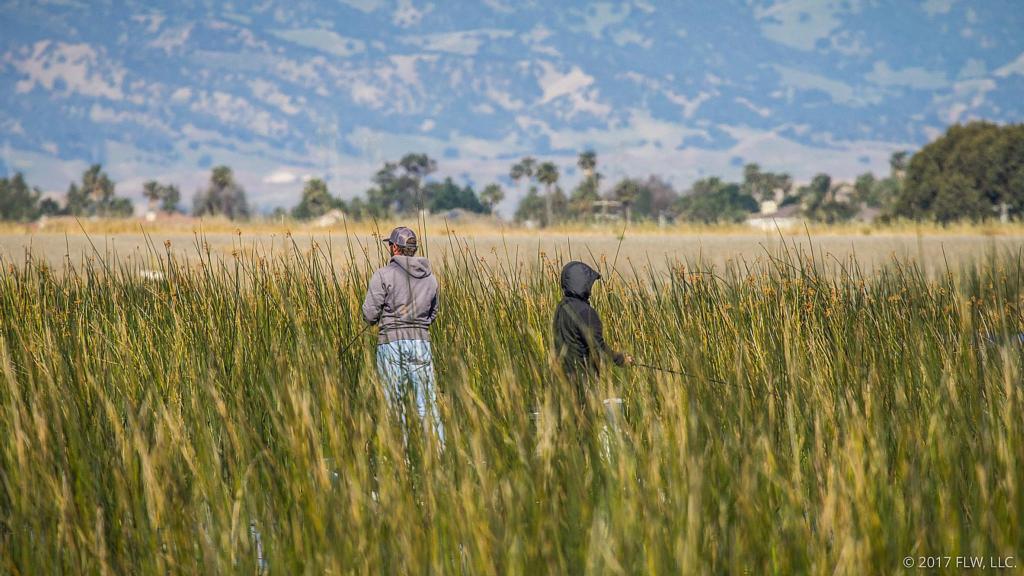
The Costa FLW Series Western Division regular season will come to a close in late September with the California Delta event launching from Russo’s Marina in Bethel Island, Calif. The Delta, known for the mammoth largemouths that hide in its abundant vegetation, has the potential to send the Western Division out with a bang ahead of the Costa FLW Series Championship on Nov. 1.
A tidal fishery consisting of canals, islands and levees, the Cal Delta is a big-bass factory for those who know how to attack its constantly changing conditions, though the tidal fluctuations can be make-or-break for the inexperienced or stubborn. At its core, the Delta is like many fisheries in California: a venue capable of producing a lot of 20-plus-pound bags.
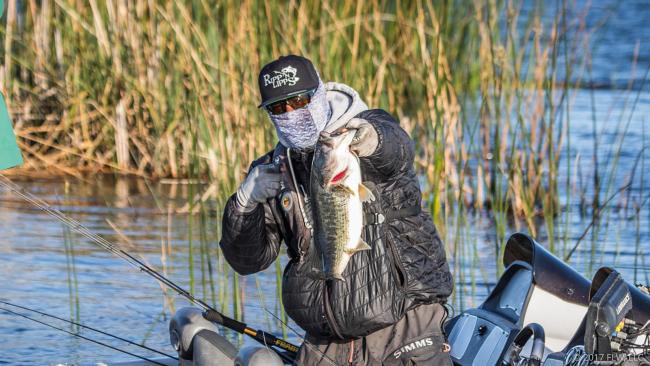
The lay of the water
The Cal Delta is loaded with vegetation and structure, both manmade and otherwise. With a handful of grasses, rock levees, docks, roadbeds and current, anglers have opportunities to fish nearly endless patterns at a somewhat tricky time of year for bass fishing.
The Cal Delta stop for the Western Division is almost always a May event, and the change in scheduling this year could be a curveball for anglers used to hammering largemouths over on Clear Lake this time of year – not that the Delta isn’t capable of producing monster bags in the fall, or any other time of year, for that matter.
Still, the fishing could prove to be tougher than many expect, especially if the abundant grass on the Delta has begun to wane below its summer peak.
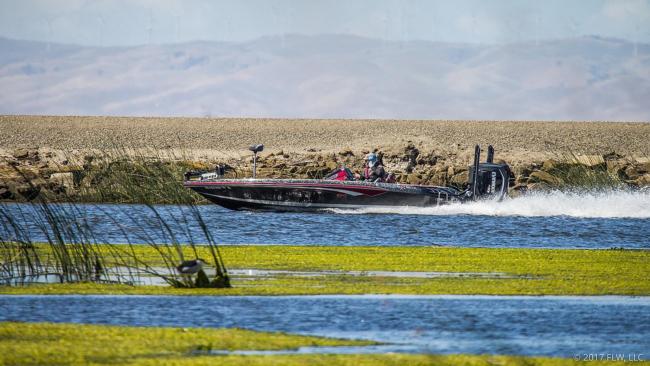
Pregame speculation
“From what I’ve been hearing from some local friends of mine that live in that area, fishing has been actually tough, and a lot of that has to do this year with them spraying the grass pretty aggressively,” Western Division Angler of the Year points leader Joe Uribe Jr. said on a recent episode of the FLW Podcast. “A lot of the areas that a lot of us anglers like to go to, kind of our local honey holes, they’re kind of changed up. There’s no grass there.”
The odd time in the season and a potential reduction in good vegetation due to spraying and natural life cycles could mean smaller limits than we’d otherwise expect to see on a fishery like the Delta. Uribe expects it might only take about 15 pounds per day to make the cut.
On the other hand, and as Uribe points out, “any cast at that place could be a giant.”
If someone is able to crack the code and land more than just one giant, a 60-plus-pound total might take home the top prize.
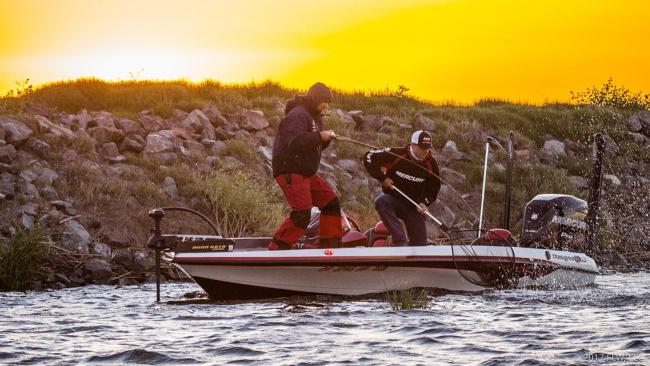
Tournament tactics
Past Costa FLW Series events at the Cal Delta have almost always taken place in May, when spawners and postspawners are both generally in play. Now, as bass are as spread out as perhaps they will be all year, nearly limitless tactics will be possible. This tournament could be won just as easily in shallow water with a crankbait (as was the case when Hunter Schlander won the event in May 2017) as it could be with finesse tactics such as drop-shotting and wacky rigging.
The key will undoubtedly be knowing how to dissect the tides and find a pattern that works each day based on tidal conditions.
“You’ve got to have obviously the right ingredients there,” says Uribe. “The tide’s always a factor.”
The angler who best manages the changing tidal conditions – and maybe finds a giant or two along the way – is the angler who has the best chance to snag a victory on the Delta.
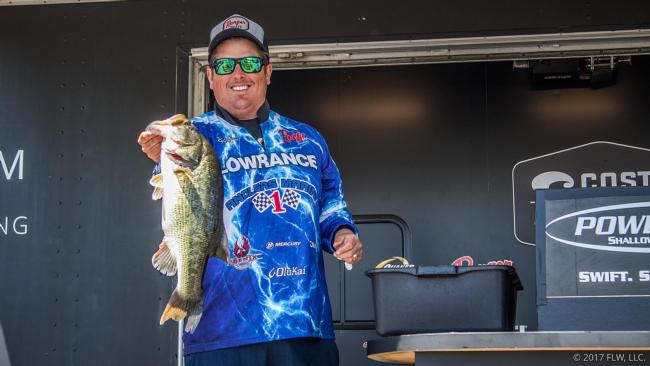
What’s it gonna take?
Uribe believes it might only take 15 pounds per day to make the top 10 at the Delta. That might very well be true, but there’s always the potential for bass in the 8- or 9-pound range to tip the scale and produce multiple 20-pound bags.
Schlander won with 57-1 last year. In 2016 it took 60-1 from Charley Almassey, and the year prior it took 61-13 from Wade Curtiss to win. Of course, all three of those tournaments took place in May.
Twenty pounds per day is possible – and would very likely win at the Delta this year – but it seems reasonable to temper expectations, if only a little, given the time of year for this event.
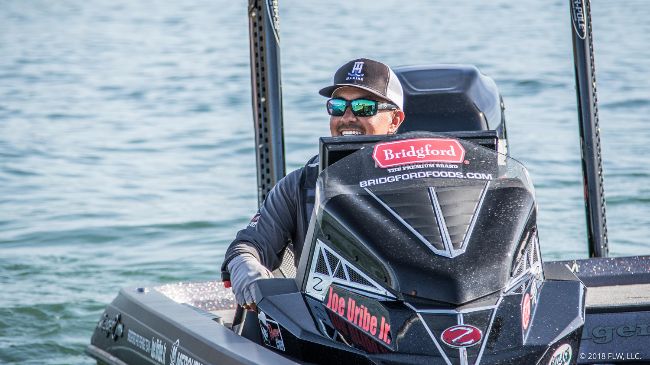
The Angler of the Year race
Both Angler of the Year and Co-angler of the Year are up for grabs in the Western Division, and it comes as no surprise that the name “Uribe” tops the list on the pro side heading into the final event of the season. What might come as a surprise, though, is that “Uribe” appears at the top of both lists.
Joe Uribe Jr. leads on the pro side after an eighth-place finish at Lake Havasu in February and a third-place finish at Clear Lake in May. His 491 points put him 11 points ahead of Nick Nourot and 14 points ahead of Justin Kerr.
On the co-angler side, Joe’s sister, Rachel Uribe, paces the co-angler field with 476 points following a pair of 13th-place finishes at Havasu and Clear Lake. She’s two points ahead of Ralph Wells and 13 points ahead of Joseph Cunningham.
There’s enough of a logjam atop both leaderboards to make for an interesting tournament, but don’t be surprised to see the Uribes finish the job with another impressive one-two punch on the Delta.
AOY top 10
1. Joe Uribe Jr. – 491 points
2. Nick Nourot – 480
3. Justin Kerr – 477
4. Sean Minderman – 476
5. Blake Dyer – 476
6. Cody Murray – 467
7. Carl Limbrick Jr. – 464
8. Marty Lawrence – 457
9. Jason Borofka – 449
10. Jason Milligan – 448
COY top 10
1. Rachel Uribe – 476 points
2. Ralph Wells – 474
3. Joseph Cunningham – 463
4. Jacob Traba – 458
5. Txawjtas Tas Moua – 452
6. David Swendseid – 452
7. David Zavvar – 452
8. Tony Zanotelli – 444
9. Kirk Beardsley – 438
10. Barry McCoy – 436
Tournament details
Format: All boaters and co-anglers will compete for two days. The top 10 boaters and co-anglers based on cumulative weight after two days of competition will advance to the third and final round, with the winner in each division determined by the heaviest cumulative three-day weight.
Takeoff Time: 7 a.m. PT
Takeoff Location: Russo’s Marina, 3995 Willow Road, Bethel Island, CA
Weigh-In Time: 3 p.m. PT
Weigh-In Location: Russo’s Marina